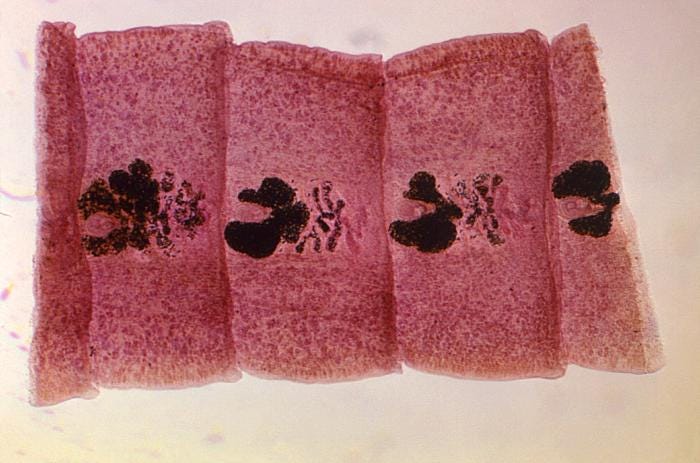The Federal Service for the Oversight of Consumer Protection and Welfare (Rospotrebnadzor) in the region reports 466 residents of the Krasnoyarsk Territory contracted the tapeworm infection, diphyllobothriasis in 2023.
Nearly nine out of 10 cases in this area of Siberia were reported in adults.
Diphyllobothriasis is caused by the fish tapeworm, Diphyllobothrium latum.
Infections are acquired by eating raw or undercooked fish, usually from the Northern Hemisphere (Europe, newly independent states of the Former Soviet Union, North America, Asia), but cases have also been reported in Uganda and Chile. Fish infected with Diphyllobothrium larvae may be transported to and consumed in any area of the world.
Diphyllobothrium latum and related species (the fish or broad tapeworm), the largest tapeworms that can infect people, can grow up to 30 feet long. While most infections are asymptomatic, complications include intestinal obstruction and gall bladder disease caused by migration of proglottids.
How to prevent Diphyllobothrium infection?
Do not eat raw or undercooked fish.
The FDA recommends the following for fish preparation or storage to kill parasites.
Cooking
Cook fish adequately (to an internal temperature of at least 145° F [~63° C]).
Freezing
At -4°F (-20°C) or below for 7 days (total time), or
At -31°F (-35°C) or below until solid, and storing at -31°F (-35°C) or below for 15 hours, or
At -31°F (-35°C) or below until solid and storing at -4°F (-20°C) or below for 24 hours.





